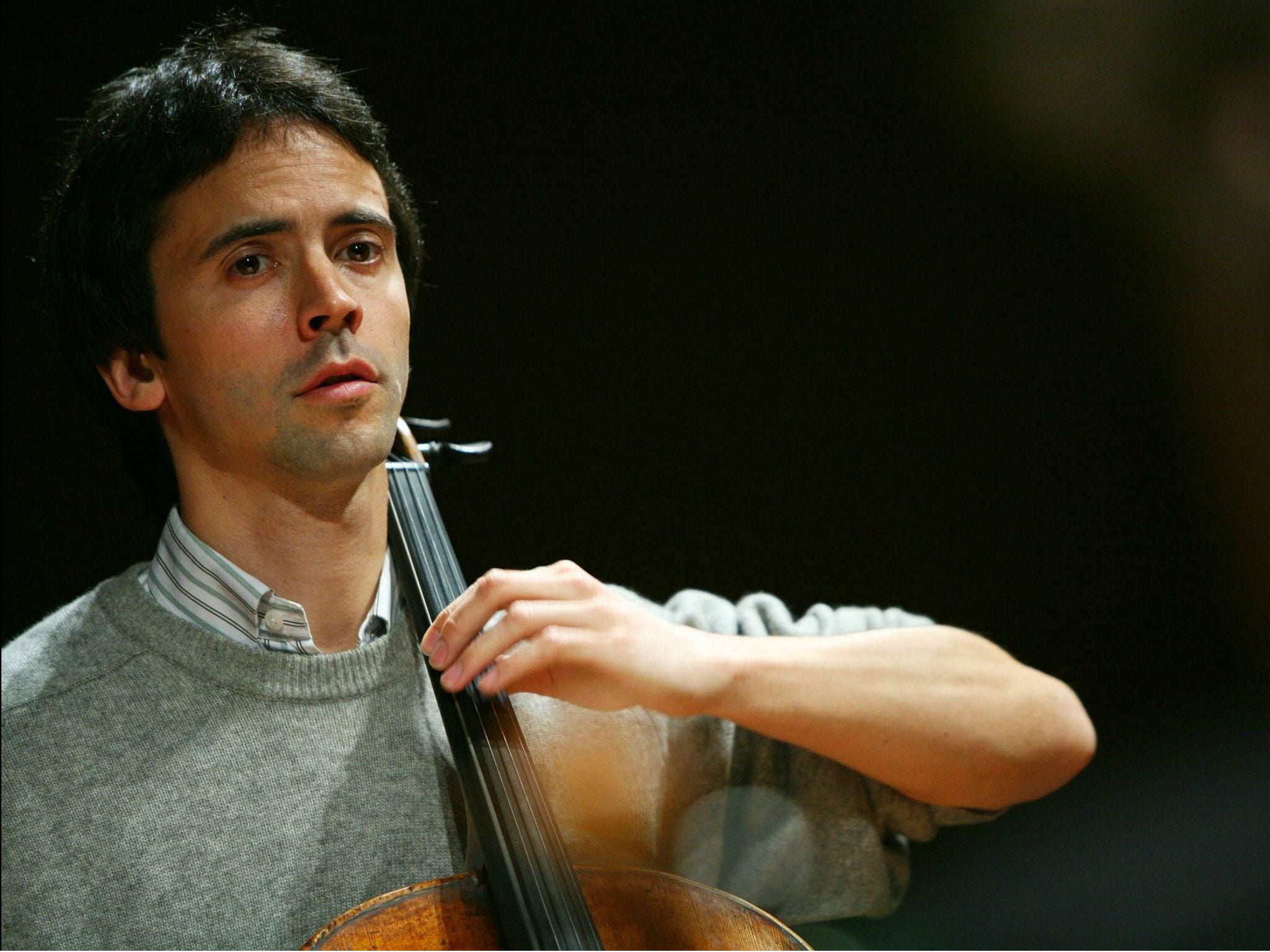Jean-Guihen Queyras and friends, Wigmore Hall, London, review: They are all dab hands at cross-cultural jamming
The French cellist Queyras performs with Sokratis Sinopoulos, master of the Byzantine lyra, and percussionists Bijan and Keyvan Chemirani playing the zarb

Your support helps us to tell the story
From reproductive rights to climate change to Big Tech, The Independent is on the ground when the story is developing. Whether it's investigating the financials of Elon Musk's pro-Trump PAC or producing our latest documentary, 'The A Word', which shines a light on the American women fighting for reproductive rights, we know how important it is to parse out the facts from the messaging.
At such a critical moment in US history, we need reporters on the ground. Your donation allows us to keep sending journalists to speak to both sides of the story.
The Independent is trusted by Americans across the entire political spectrum. And unlike many other quality news outlets, we choose not to lock Americans out of our reporting and analysis with paywalls. We believe quality journalism should be available to everyone, paid for by those who can afford it.
Your support makes all the difference.Zarb, dayereh, lyra, cello – you couldn’t get a more incongruous-seeming instrumental line-up on stage than the one Jean-Guihen Queyras and his friends Sokratis Sinopoulos, and Bijam and Keyvan Chemirani offered in the Wigmore’s latest foray into cross-cultural programming. The lyra is a tiny bowed lute with a penetratingly nasal sound which hails from Byzantine times and is native to Crete, and it’s in every way the absolute antithesis of the cello; the zarb goblet drum and dayereh frame drum are Iran’s staple percussion instruments. But Queyras and co are all dab hands at cross-cultural jamming, and did so here to brilliant effect.
The programme was chosen partly to show possible parallels between avant-garde European music and traditional music of the eastern Mediterranean, but there was less correspondence than might have been hoped: Lutoslawski, Kurtag and Stroppa remained obstinately separate and sealed off, when placed alongside improvisations in Greek, Turkish, and Iranian folk styles. But that didn’t matter: those improvisations were so beguiling and so gloriously freewheeling that one gladly sacrificed European expectations to savour to the full this feast of virtuosity. All these musicians are stars, but there was one extra star hovering unseen over the proceedings: Ross Daly, Norfolk-born but self-exiled for life to Crete, where he has become the world authority on the lyra, and a prolific composer for it.
Join our commenting forum
Join thought-provoking conversations, follow other Independent readers and see their replies
Comments